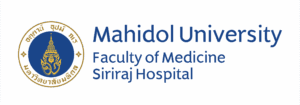Announcement of the Prince Mahidol Award 2024
On November 21st, 2024, the annual Joint Press Conference was held to announce the 33rd Prince Mahidol Award Laureates 2024 at the Prince Mahidol Memorial Room, Faculty of Medicine Siriraj Hospital, Mahidol University, addressed by Prof. Apichat Asavamongkolkul, Dean of the Faculty of Medicine Siriraj Hospital, Mahidol University as Vice President of the Prince Mahidol Award Foundation; Clin. Prof. Supat Vanichakarn, Secretary General of the Prince Mahidol Award Foundation under the Royal Patronage; Mr. Nikorndej Balankura, Director-General of the Department of Information, Ministry of Foreign Affairs as Chairperson of the Sub-Committee on Public Relations of the Prince Mahidol Award Foundation; and Prof. Prasit Watanapa, Chairman of the International Award Committee of the Prince Mahidol Award Foundation.
The Prince Mahidol Award 2024 in the field of Medicine is awarded to Prof. Dr. Tony Hunter, PhD, UK / USA.
The Prince Mahidol Award 2024 in the field of Public Health is awarded to Prof. Dr. Jonathan P. Shepherd, DDSc, PhD, UK.
In addition to 73 nominations from 29 countries in 2024, the Scientific Advisory Committee also meticulously reviewed past applications from 2021 – 2023 before submitting a short list of candidates to the International Award Committee for the latter’s recommendation to the Board of Trustees, which had a meeting on 1 November 2024, presided over by H.R.H. Princess Maha Chakri Sirindhorn, to make the final selection for the Prince Mahidol Award 2024.
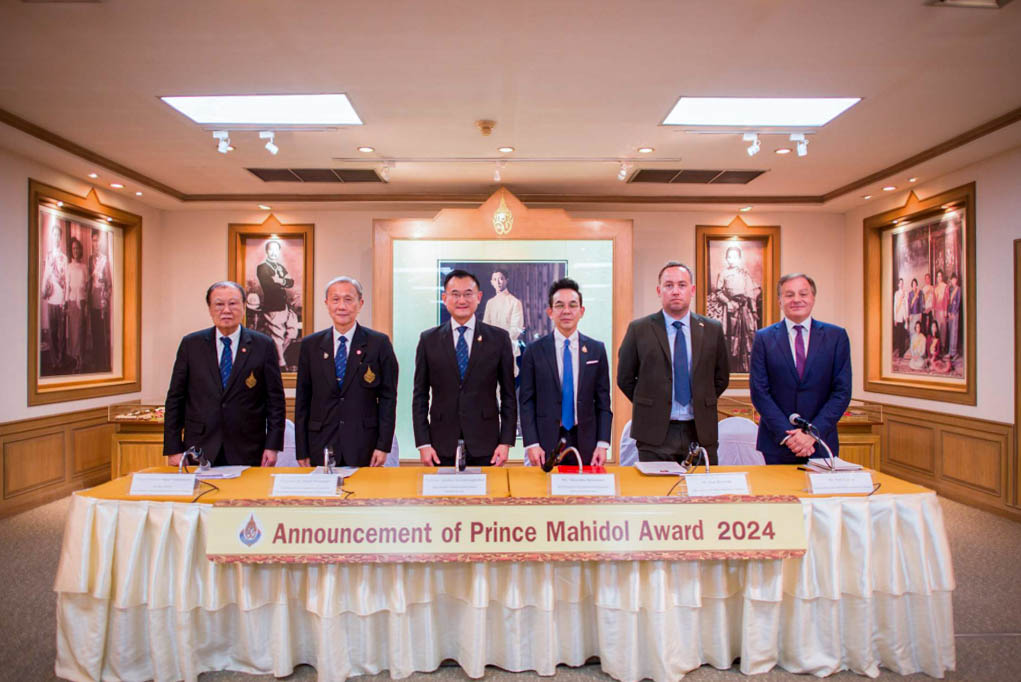
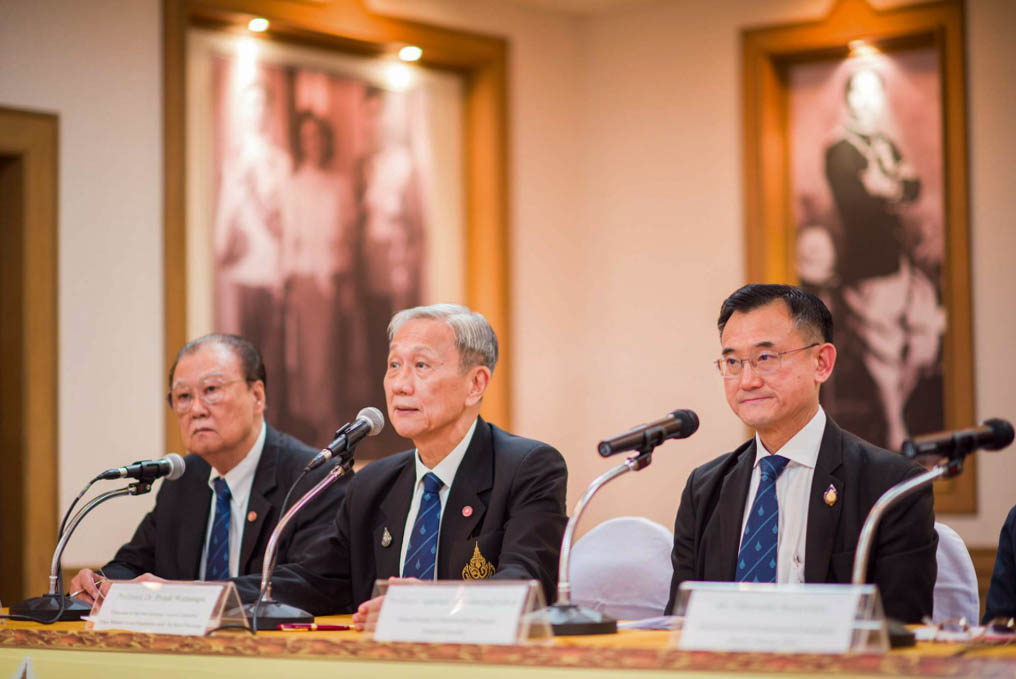


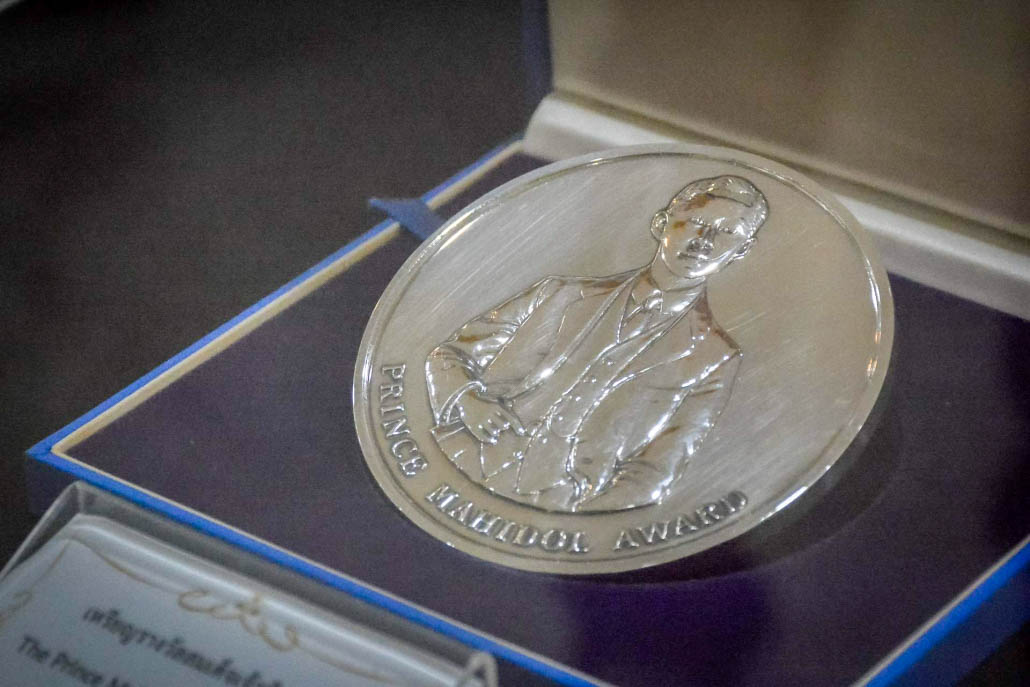
* * * * *
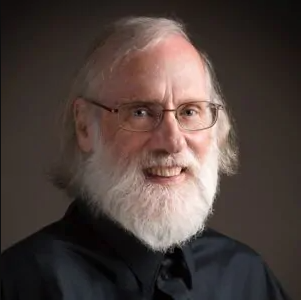
Prince Mahidol Award Laureate 2024 In The Field of Medicine
Professor Doctor Tony Hunter, Ph.D.
Professor of Biology, Salk Institute for Biological Studies
Adjunct Professor, University of California, San Diego, California, USA
Professor Dr. Anthony Rex Hunter, known as Professor Dr. Tony Hunter, completed his bachelor’s, master’s, and PhD degrees in protein synthesis research at the University of Cambridge, United Kingdom. He later became a researcher at the Salk Institute for Biological Studies in the United States of America in 1975 and has remained there to this day. His significant contributions in the field have earned him successive promotions, leading to his current position as Professor at the Salk Institute and Senior Researcher (Renato Dulbecco Chair) at the Salk Institute for Biological Studies, USA.
Professor Dr. Tony Hunter’s significant research achievement was the first discovery of tyrosine kinase enzymes and the phosphorylation process. Phosphorylation is the addition of a phosphate group to the amino acid tyrosine in proteins. This process is a fundamental mechanism of cellular signaling that regulates cell growth and function. Abnormal activation of tyrosine kinase enzymes, for example, by viruses or cancer-causing agents, can transmit signaling across the cell membrane, leading to excessive phosphorylation of proteins within the cell. This mechanism plays a crucial role in transforming normal cells into cancerous cells.
Understanding this mechanism led to the development of targeted cancer therapies by inhibiting the activity of tyrosine kinase enzymes. This breakthrough has resulted in the creation of numerous highly effective drugs, with no fewer than 86 tyrosine kinase inhibitors available, such as Imatinib (Gleevec™), used to treat leukemia. The application of the understanding has significantly benefitted the health and well-being of the public and has greatly contributed to the advancement of cancer treatment and research worldwide.
* * * * *

Prince Mahidol Award Laureate 2024 In The Field of Public Health
Professor Doctor Jonathan P. Shepherd, D.D.Sc., Ph.D.
Emeritus Professor of Oral and Maxillofacial Surgery
Director of the Institute for Crime, Security and Justice Innovation, Cardiff University, United Kingdom
Professor Dr. Jonathan P. Shepherd graduated with a Bachelor of Dental Surgery from King’s College, University of London, a Master’s degree in specialist training in Oral Surgery from the University of Oxford, and a Doctorate from the University of Bristol, United Kingdom. He served as Director of Cardiff University’s Violence Research Group for 22 years.
Professor Dr. Shepherd’s significant achievement was development and implementation of the “Cardiff Model for Violence Prevention”
Due to injuries from various violent incidents, which constitute a significant public issue in the country, there have been substantial losses in terms of injuries, lives, and emotional, psychological impacts, as well as economic consequences. Research findings by Professor Dr. Shepherd have shown that severe crime problems lead to a high number of patients seeking treatment in hospital emergency departments. However, most of these incidents, up to 75%, are unreported, leaving law enforcement and authorities unaware of them. Consequently, a data linkage was established between hospitals and the police to analyze frequent incident locations, times, as well as the scale and types of violence. This led to the creation of the Cardiff Model, which can be effectively used for planning violence prevention. The number of patients needing emergency department services significantly decreased by 42%, helping to reduce healthcare costs related to injuries considerably.
The Cardiff Model was developed between 1997 and 2001, and first implemented in Cardiff, the capital city of Wales, and later in London. It proved highly effective in reducing the impact of violent incidents, leading to its adoption throughout United Kingdom and later in multiple other countries, including Australia, the Netherlands, South Africa, Colombia, Jamaica, Canada and the United States. The World Health Organization has used it for violence prevention among children, and the U.S. Centers for Disease Control and Prevention (CDC) has also applied it.
The Cardiff Model is now recognized as a vital public health tool and innovation for reducing community violence. It has significantly helped decrease loss of life and property, enhanced the quality of life in various communities, and gained acceptance across continents, benefiting the health of hundreds of millions worldwide.
